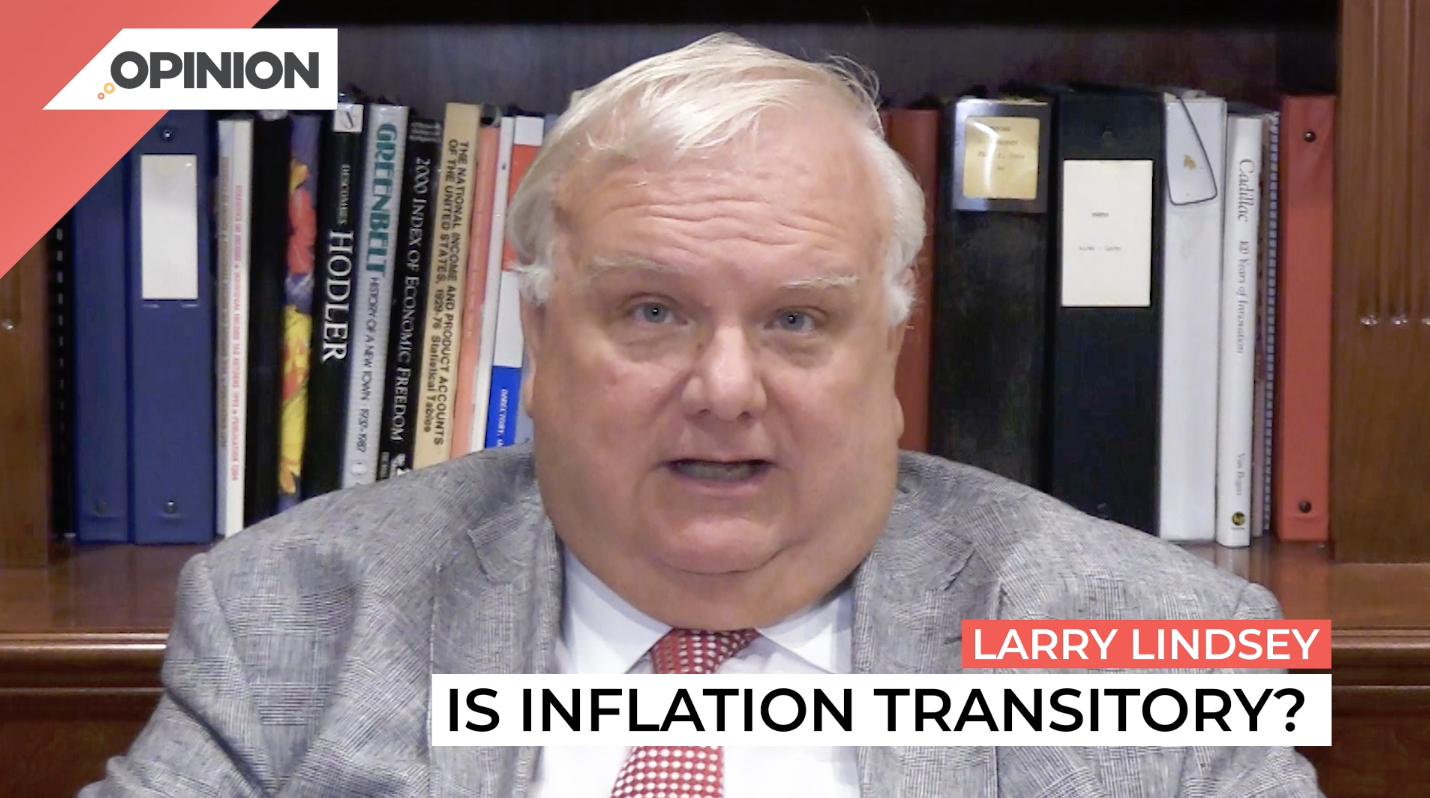
Commentary
-
Our commentary partners will help you reach your own conclusions on complex topics.
There’s a lot of debate today in the country particularly at the Federal Reserve, which controls the amount of money in circulation, about whether or not the inflation we’re now having is a transitory factor, whether it’s going to be with us for a while. Economic history, and frankly common sense, suggests exactly where to look for the answer.
And that is wages. How much we Americans expect as far as a raise goes in order to keep doing what we’re doing. We want to keep up with inflation. And so if we’re falling behind, the odds are we’re going to go to our bosses and demand a raise.
Well, let’s look at some of the data in the last seven months.
In other words, since the start of this year, wages have gone up. They were going up at a 4.2% annual rate. The problem is prices have been going up at a 6.3% annual rate.
So even though we’re getting more in our paychecks, we have less leftover by the time we pay all of our bills. And that means we’re going to go to our bosses and start asking for more money.
By the way, it’s very unusual for wages not to keep up with inflation. So the last seven months have been quite different from most of American history since the end of World War II.
Okay, well, what will our employers say when we ask for more wages?
Well, the fact is they’re desperate to hire people.
The National Federation of Independent Businesses, which is a small business group, surveyed its members and found that half of them have open positions that they can’t find someone qualified to fill. That is the highest number since the survey began 48 years ago. Half of those businesses can’t find a worker to fill a job that’s open.
Big businesses say to other surveys that finding qualified workers is their biggest problem.
And then there’s the big picture.
The Bureau of Labor Statistics did a survey on how many job openings there are in the country. And last month, that number was 10.9 million. In a different survey, they say how many people are unemployed. And the answer to that was 8.4 million. In other words, there are 2.5 million more job openings than there are people out there who are unemployed.
Well, why can’t those unemployed people find a job? Well they can, but they probably can’t find a job at the rate of pay that they want in order to go to work.
And so we’re already seeing the dynamic where people are going to have to start asking for more pay, and employers are going to have to start paying more in order to fill those positions.
And then there’s one other factor that’s going to start creeping in.
How do you get a raise from your boss?
Well, your boss isn’t going to come around to your desk, pat you on the back, and say here’s some more money. Oh, they do that once a year just to make you feel loved, I guess, but the way to really get a wage increase is to ask your boss, and if he doesn’t give you enough, you give your notice, and then see what he says.
In fact, I have a little anecdote about that. Um, my son got a 4% raise. He put in his two weeks notice and the boss came back with at 19% raise if he’d stay. So that’s how you actually get a bigger raise.
And the numbers show that people who don’t ask for a raise, people who are staying in their same jobs, getting one and a half points less than the average, which means people who do change jobs are getting double digit increases. That’s where we’re headed in our labor market.
If employers want to fill the positions to get someone from another job or hire someone, new wages have to go up a heck of a lot.
Well, if wages go up, the cost of producing things goes up and employers don’t just sit there. They pass that on in the form of higher prices.
So the answer to the question, “Is inflation transitory?” is quite simple, and it’s found in the labor market. The answer is no, we have inflation, inflation is accelerating. It’s not going to go away. In fact, it’s likely to accelerate some more.
-
Election 2024 will boil down to the Great Lakes states
Pollsters and pundits have been engaged in a long debate about how Biden or Trump might win the 2024 election, with much of their focus spent on the “swing state” electoral battlegrounds. While the winners of Alabama or California may be obvious, for instance, who wins Pennsylvania is a more difficult question. Watch the above… -
Why the Fed should consider Theory of Reflexivity when fixing policy
The Theory of Reflexivity, often used in the context of economics and financial markets, implies that investors don’t base their decisions on reality but on their perceptions of reality. This creates a feedback loop where investors’ perceptions influence economic fundamentals, which in turn alter investor perceptions. Watch the above video as Straight Arrow News contributor… -
Federal Reserve surpassed its own wildest expectations
On May 14, the U.S. Bureau of Labor Statistics released the most current producer price index (PPI) report, which showed an increase of 0.5% month-over-month in April. After the report’s release, U.S. Federal Reserve chairman Jerome “Jay” Powell said that while he believes the current policy rate is restrictive by many measures, the Fed needs… -
Polls give slight advantage to Trump in Electoral College
With the U.S. general election only six months away, leading candidates President Joe Biden and former President Donald Trump appear to be engaged in a very close contest. In their 2020 race, the winner of the Electoral College was ultimately determined by a relative handful of voters in just a few swing states, even though… -
College sports is big money but not everyone benefits
March Madness has wrapped up and Caitlin Clark has emerged as a household name as well as a wealthy student athlete. Earning over $3 million throughout her college career, her success stands in stark contrast to the previous notion that collegiate athletes shouldn’t earn anything beyond their scholarship. Straight Arrow News contributor Larry Lindsey examines…
Latest Opinions
-
 Getty Images
Getty Images
US troops bolster border security to curb illegal crossings
-
 Getty Images
Getty Images
Zelenskyy meets with British prime minster following tense Trump meeting
-
 Getty Images
Getty Images
Trump admin. asks federal workers to detail weekly accomplishments, again
-
 Getty Images
Getty Images
Military members with gender dysphoria to be processed for separation: DOD
-
 Getty Images
Getty Images
Zelenskyy says Trump not owed an apology after White House dustup
Popular Opinions
-
In addition to the facts, we believe it’s vital to hear perspectives from all sides of the political spectrum.






